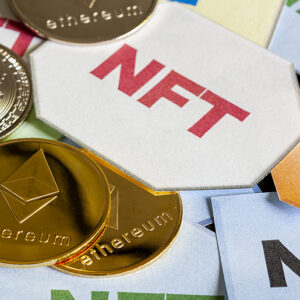If you’ve been following the mad world of cryptocurrency, and especially if you’ve invested, you might feel queasy from the roller-coaster ride. There will be a cryptocurrency shakeout, and it’s hard to predict who the winners will be.
With that in mind, it’s worthwhile to understand NFTs and why they will continue to be important no matter what the future holds. At the meta-level, NFTs are a tool that offers authenticity, proof of ownership and tracking capabilities. While NFT stories of cartoony figures on tiles worth millions strain our credulity, many use cases exist where NFTs bring substantial value.
First, a Recap on NFTs
NFT stands for “non-fungible token” and is a way of attesting that your digital asset is authentic. “Fungible” assets are like dollar bills — all worth the same. “Non-fungible” applies to digital assets like artwork or music that are unique. NFTs authenticate ownership via a “token.”
Think of NFTs as a one-of-a-kind digital asset whose proof of ownership cannot be duplicated. When a piece of art is copied, an NFT will certify that the owner has the original.
Now, here are three use cases where NFTs may reshape our world.
Real Estate
The real estate industry is one of the most NFT-ready sectors. NFTs can be used to transfer land deeds, provide proof of ownership, and even keep track of changes in property value using time-stamping.
NFTs are particularly useful in helping to simplify and speed up real estate transactions. Through the use of a “smart contract,” automatic payment can be made for properties. NFTs are also useful in the decentralized home rental services market. Maybe you want to rent your home, but you need a convenient and secure way to do so. Because NFTs reside on a blockchain, the security provided for sensitive data like credit cards can aid you in the process.
A company called Propy has pioneered the development of NFTs for real estate. Others will follow and will probably transform the industry.
Medicine
HIPPA (Health Insurance Portability and Accountability Act) has heightened our awareness of the need to safeguard personal information. Ironically, there is immense value in stripping the patient identifier information and then selling the data to researchers for various purposes — from measuring efficacy to directing product development.
Bioethicists have asked whether it is fair that an individual’s data is being sold and profited from without the individual receiving any compensation. Even more to the point, the patient has no control over where his information travels.
NFTs offer a possible solution. By minting an individual’s medical record into an NFT, the patient can track his information and be in total control. If there is an interested buyer, the individual is in the driver’s seat and should receive compensation.
Companies are stepping up in applying NFTs to medicine. A company, Cardano, has developed a blockchain where information can be shared without revealing one’s whole identity. Another company, Aimedis, uses NFTs to store a patient’s ECG information.
As new applications are identified, the use of NFTs in medicine will grow. Information will be more secure, controlled by the patient, and might present an opportunity for personal monetization.
Education
NFTs will be used as a record of academic achievement, where tokens prove that the person holding the token earned the credential, thus reducing fraud. As students transfer from one school to another, their records will be fully accessible on the blockchain, without wait time or missing data.
There are other implications for the adoption of NFTs in education. Content creators, such as artists or musicians, will have the opportunity to sell their digital art globally. This might help to monetize their work and foster stronger business skills.
As NFTs in education become the trusted source for diplomas, degrees and certifications, more companies will serve this NFT market application. Digital badge company Credly has already begun to leverage blockchain technology for this exact reason, touting the benefits of NFTs — authenticity, security and accessibility.
More use cases for NFT will emerge and change business as we know it. NFTs won’t just be about gaming. From intellectual property to fashion and wearables to purchasing event tickets to managing the supply chain, NFTs will help to track, authenticate and control our valuables. My forecast won’t change no matter whom tomorrow’s cryptocurrency winners turn out to be.

